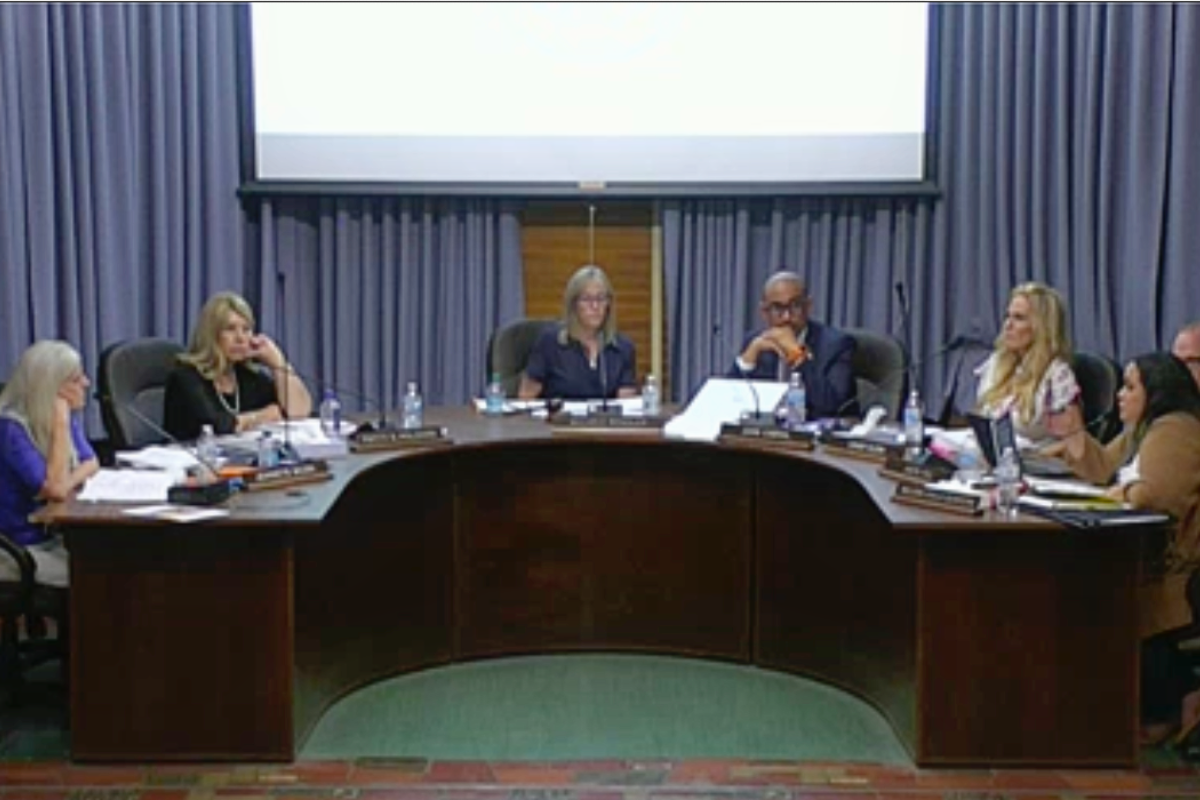Downtown arrests made; student cellphone rules finalized
Redlands News Weekly | Feb. 26, 2026
Calls for recommitment follow reports of racism, but board members cite concerns over language and unity

REDLANDS, Calif. – The Redlands Unified School Board opted not to revise its existing anti-racism resolution last week, instead will explore a possible unified statement reaffirming the board's commitment to "eliminating or reducing racism" in the district.
Why it matters: Redlands Unified’s 2020 anti-racism resolution, which was adopted in the wake of George Floyd’s murder and nationwide protests, laid the foundation for equity initiatives across the district, including the hiring of an equity coordinator, new training programs and an ethnic studies course. As reports of racism persist in local schools, community members are urging the board to publicly recommit to that work.
What happened: Board member Melissa Ayala-Quintero introduced a slightly updated version of the 2020 resolution and asked the board to recommitment to "changing our system, eradicating racism and standing to create more equitable and inclusive schools."
Board member Candy Olson presented a separate, shorter resolution titled “Promoting Anti-Racism, Equal Opportunity, and Unity in Education,” which focused on individual merit and rejected “ideologies that seek to divide students along racial lines.”
“I don’t like calling people white supremacists. I don’t like saying racism is a public health crisis,” Olson said in an explanation as to why she brought a new version to the table.
Board President Michele Rendler floated a third option: a concise board statement reaffirming anti-racism principles “in a way that reflects where this board is now.”
Superintendent Juan Cabral reminded trustees that the 2020 resolution remains active. “Much of the work that we’re doing today is a result of the resolution that was passed,” including the position of equity coordinator, he said. "The work that we're doing to try to eliminate or reduce racism in our district is a result of the work done because of the resolution."
Both express support for dignity, diversity and rejecting discrimination—but differ sharply in how they frame the causes and solutions.

The 90-minute discussion grew emotional and at times, contentious.
“I find it very upsetting that I asked this board to recommit to a policy, and all of a sudden we want to change all of it,” she said. “This is already something we’ve adopted, whether you like it or not.”
Olson noted that the board has changed since the resolution was passed and she disagrees with some of the language.
"It's very divisive. So I like the idea of a resolution. I just think it needs to be written appropriately. And I think it's way too long," Olson said.
Ayala-Quintero said it wasn't about switching out a word here but rather an effort to "delete the work." “I’m not comfortable changing the language to fit your comfortability,” she said.
Board member Jeanette Wilson urged the board pair down the resolution and make it "future focused:" "Our priority is to reduce racism and discrimination… This document is trying to provide so much of the education rather than being a resolution."
Rendler, who voted in favor of the policy in 2020 said she supported the resolution with reservation: “Just because there were three or four things I didn't like, I wasn't going to say forget it.”
The school board reviewed two competing resolutions but declined to adopt either. Instead it directed staff to return with a statement regarding racism for the board to review.
"That's really disappointing," said Ayala-Quintero. "All I did was ask you guys to reaffirm your commitment, and I guess now we see that the board is not willing to."
Of the roughly 40 speakers who addressed the board on the issue, most urged the board to reaffirm or strengthen its 2020 resolution on eradicating racism, which was developed by a diverse committee of students, educators and community members.
“We were unified in the duty of addressing systemic racism in our schools,” said Jennifer Kim, a trustee in Area 1 who served on the original committee. “This statement was created out of intentionality, empathy and equity.”
Others warned that replacing it with the new “promoting anti-racism” resolution would suppress honest education.
“This resolution would silence student identities and history, deny the realities of racism, and block students from learning the full story of our beautiful but complex country,” said Dr. Alise Clouser, vice president of the district’s African American Parent Advisory Committee.
Supporters of the new resolution, including Dr. Dale Broome, objected to terms like “white supremacy,” “systemic racism,” or the framing of racism as a “public health crisis” in the original resolution.
“I’ve been a doctor for 40 years,” Broome said. “I’ve never seen anybody come in the emergency room with systemic racism symptoms.”
Tuesday’s discussion follows months of community tension around racial incidents in Redlands schools. Families have repeatedly shared stories during public comment about students being targeted with slurs or racial harassment.
No timeline was set for a vote, but the board is expected to revisit the issue after reviewing the proposed unified statement.
Sign up for our weekly newsletter